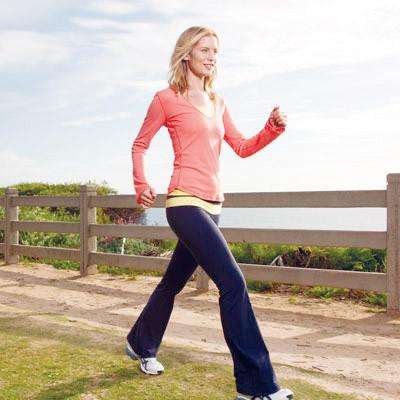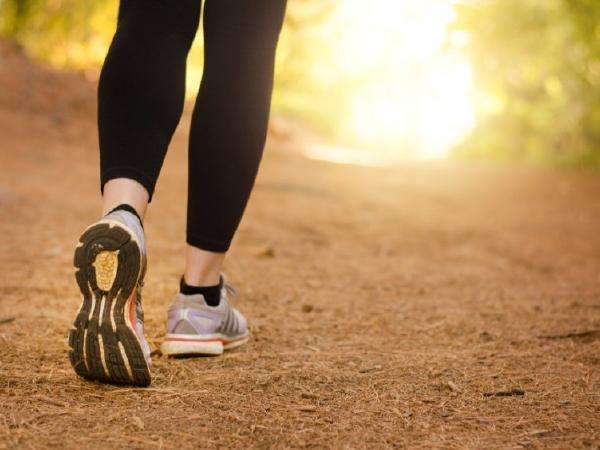Exercise Tips During Ramadan For The Bride

Planning a wedding can be tiring, and it can even be more tiring and stressful when you are fasting.
Not only does a bride-to-be have to plan an entire wedding, but she also has to keep track of her health, weight loss, or weight maintenance program.
Also, check out: How to Lose Weight Before Your Wedding During Ramadan
However, amidst the hustle and bustle of wedding planning and fasting, there's a silver lining: Navigating through the process during Ramadan doesn't have to drain your energy or leave you feeling exhausted. In fact, the shorter working hours and heightened spiritual focus characteristic of Ramadan can present unique opportunities to prioritize your well-being and embark on a journey towards achieving your health and fitness goals.
Whether you're aiming to shed a few pounds before your big day or simply striving to enhance your overall fitness level, we've curated a collection of tips and insights tailored specifically for brides-to-be navigating the wedding planning process during this sacred month.
These tips are designed to empower you to make the most of Ramadan's unique opportunities for health and wellness amidst the joyful chaos of wedding preparations.
Take a Walk
Walking is a great exercise to do during Ramadan, as it is also very relaxing and will keep you occupied for an hour. Taking a leisurely stroll allows you to step away from the stress and distractions, immersing yourself in the tranquility of nature or the serenity of your surroundings.
Additionally, walking is a low-impact activity that is accessible to individuals of all fitness levels, making it an ideal choice for brides-to-be seeking to stay active and energized during Ramadan without overexerting themselves. By incorporating regular walks into your daily routine, you not only contribute to your physical well-being but also nurture your emotional and mental health, ultimately enhancing your overall sense of vitality and inner peace as you journey towards your wedding day.
Timing is Everything
Engaging in physical activity, such as working out or going for a walk, an hour before Iftar (the evening meal to break the fast) presents an opportune window for maximizing the benefits of your exercise routine while ensuring proper hydration.
By scheduling your workout or walk just before Iftar, you can replenish your body's fluids shortly after completing the activity, helping to offset any dehydration incurred during the fast.
Working Out After Iftar
While it's ideal to complete your workout about an hour before Iftar, we understand that scheduling constraints may necessitate exercising after breaking the fast. If this is the case, it's essential to approach post-Iftar workouts with caution to avoid discomfort and maximize effectiveness.
Avoid overeating during the evening meal to prevent stomach discomfort or bloating during your workout. Instead, opt for a balanced meal that provides sustained energy without overwhelming your digestive system.
By being mindful of your body's needs and adjusting your exercise routine accordingly, you can ensure a safe and effective workout experience even after Iftar during Ramadan.
Tips for Exercising During Ramadan
- Focus on Light to Moderate Exercises: During Ramadan, it is best to avoid high-intensity workouts that require significant effort, such as long-distance running or heavy weightlifting. Instead, focus on light aerobic exercises like walking or swimming, or bodyweight strength exercises such as squats or push-ups.
- Stay Hydrated: One of the most important tips for exercising during Ramadan is to maintain good hydration. Ensure you drink enough water between Iftar and Suhoor to replenish lost fluids. Avoid caffeinated or sugary drinks, as they can lead to dehydration.
- Eat Balanced Meals After Exercise: Make sure to consume healthy, balanced meals that include proteins, carbohydrates, and healthy fats after working out. A light snack with carbohydrates, such as dates or fruits, before exercise can provide the necessary energy. Meanwhile, a meal rich in protein and healthy fats after the workout helps with muscle recovery.
- Listen to Your Body: Ramadan is a spiritual and physical journey that requires careful attention to overall health. If you feel fatigued, dizzy, or excessively tired, stop exercising immediately and rest. Always ensure your body can handle the workout without negatively affecting your fasting.








